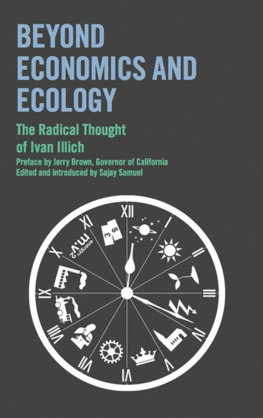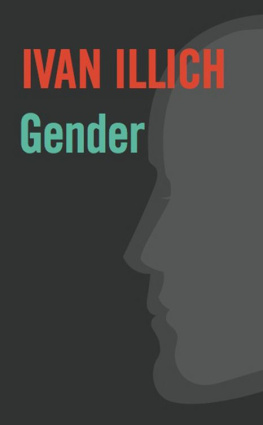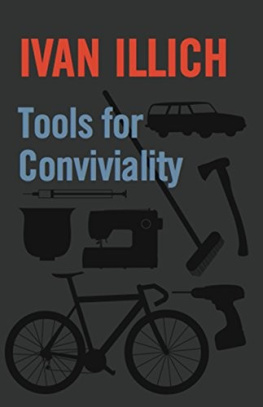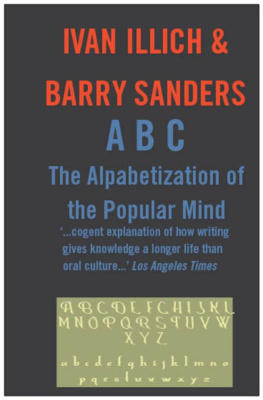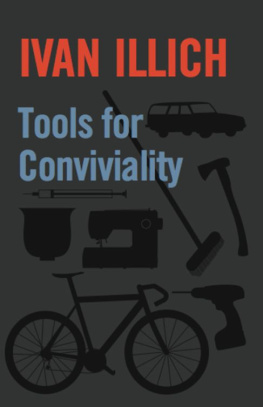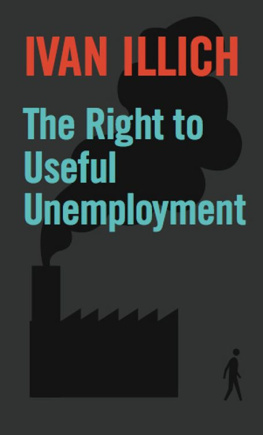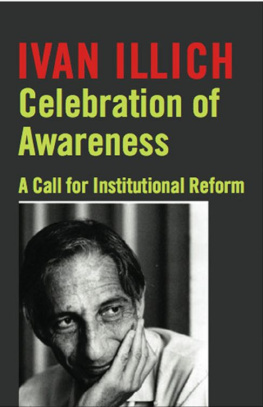by Jerry Brown
I VAN ILLICH is not your standard intellectual. His home was not in the academy and his work forms no part of an approved curriculum. He issued no manifestos and his utterly original writings both confound and clarify as they examine one modern assumption after another. He is radical in the most fundamental sense of that word and therefore not welcome on any usual reading list. The authoritative New York Review of Books last mentioned him thirty years ago, one editor terming him too catastrophic in his thinking. The New York Times, in its 2002 obituary, dismissed his ideas as watered-down Marxism and anarchist panache. Even in death, he deeply upset the acolytes of modernity.
I knew Ivan Illich and had the pleasure of enjoying many hours at his table in lively conversation with his friends in Cuernavaca, Oakland, State College, and Bremen. His gaze was piercing yet it was warm and totally embracing. His hospitality was unmatched and his aliveness and friendship well embodied his ideas that in print were so provocative and difficult.
Illich was a radical because he went to the root of things. He questioned the very premises of modern life and traced its many institutional excesses to developments in the early and Medieval Church. In his writings, he strove to open up cracks in the certitudes of our modern worldview. He questioned speed, schools, hospitals, technology, economic growth and unlimited energy even if derived from the wind or the sun. Yet, he flew constantly across continents and mastered rudimentary programming. He once told me computers were an abomination but many years later used them like a pro. Yes, there were contradictions and as you read these essays, take a step back. Probe for the deeper meaning.
As Californias governor, I am building Americas first high speed rail system and pushing a relentless expansion of renewable energy. Yet, I still reflect on Illichs ideas about acceleration and transportation and even energy. Illich makes you think. He forces you to question your own deepest assumptions. And as you do, you become a better thinker.
Illich said equity would not come with more economic growth. Thats a hard doctrine. We all want our GDP to grow. Yet look at the growth in inequality these last twenty years. Could he have seen that coming? Illich warned of counter-productivity, the negative consequences of exceeding certain thresholds. Are there tipping points in standardized schooling, medical interventions, transportation, energy consumption and the devices it makes possible? Illich wrote of learning as opposed to being taught in classrooms. Now the internet is opening access to knowledge and making learning possible outside of institutional constraints.
Illich early on warned of the ecological dangers of poisons and pollution generated by modern technologies, but he thought the breakdown in our social and cultural traditions was more pressing and more dangerous.
The way he lived, the simplicity and the caring of one human being for another, illuminates the underlying message of all his writings. He saw in modern life and its pervasive dependence on commodities and the services of professionals a threat to what it is to be human. He cut through the illusions and allurements to better ground us in what it means to be alive. He was joyful but he didnt turn his gaze from human suffering. He lived and wrote in the fullness of life and confronted with humor and uncommon clarity the paradoxes and contradictions , the possibilities and yes, the limitations of being mortal.
These essays will provoke you but they will also shine some light on the wonders of our time, its dangers and accompanying illusions.
Jerry Brown
Governor of California
May 2013
AFTER ILLICH:
an Introduction
by Sajay Samuel
T HE ECOLOGICAL and economic crises have passed. The word crisis derives from the Greek krisis, which referred to that moment in the course of an illness when it decisively turns towards either health, as when a fever breaks into a sweat, or death, as when the pulse fatally weakens. Crisis marks the moment beyond the fork in the road, when the road not taken fades into the distance.
The economic crisis is behind us because full employment is no longer thought to be achievable, whether in advanced or emerging economies. Billions worldwide are unemployed. Millions more are underemployed or belong to the class of the working poor whose wages do little to lift them from misery. The ecological crisis is in the past as well in that the physical environment surrounding humans has turned inhospitable to many. Disappeared forests, privatized lands, paved streets, and foul airs are but some of the features of degraded land on which few can subsist.
Even as they dimly recognize it, many react to this state of affairs with a mix of resistance, anger, and fear. From Puerta del Sol in Madrid to Zuccotti Park in New York City, young and old have agitated for work. Hundreds of thousands eagerly seek low wages jobs available only to a tiny fraction. Desperate to obtain employment, many students borrow money to pay for the privilege of working as interns. On Earth Day 2012, although millions of people assembled from Melbourne to Maui to protest intensifying environmental degradation, research funds now pile up for geo-engineering on a planetary scale. Proposed schemes include stirring the oceans to absorb more carbon, as if seawater were simply tea in a giant cup. In towns and counties across central Pennsylvania, citizens accept poisoned aquifers and waterways as necessary consequences of clean natural gas.
Forty years ago, Ivan Illich (1926-2002) foresaw the coming crises. He argued that the industrialized societies of the mid-twentieth century, including communist Russia and capitalist USA, were already burdened by too much employment and too much energy. Explaining that habituation to employment frustrates and destroys self-reliance, and that the increasing power of machines deepens dependence on them, Illich warned against those whose misunderstanding of crisis would perversely bring on what they sought to avoid. Even though this is precisely what they have wrought, politicians and scientists continue to stubbornly insist that the economic crisis is simply a matter of not enough jobs and that the ecological crisis is a matter of not enough clean energy. Not enough jobs channels attention to creating more employment by expanding the economy, just as not enough clean energy confines debate to getting more of it through techniques that reduce carbon emissions. This persistent fixation on more employment and more energy has now found expression in dreams of a so-called green economy, which in one stroke will somehow wipe out unemployment and renew the environment. Its a fixation that blinds us, Illich noted decades ago, to recognizing the thresholds beyond which useless humans will be forced to occupy uninhabitable environments.
Doubtless, the fear and anxiety of a jobless life is palpable to the intern who must pay to work in a job. So are the incomprehension and anger of the family who is homeless when displaced by a hurricane. But millions of others, who may be luckier, feel trapped between the pincers of shrinking paychecks and the rising costs of gas, heating oil, and food. For the many who must bear it, however, this feeling of vulnerability and precariousness need not lead to paralyzing despair. Instead, forced by their circumstances to acknowledge that widespread unemployment and a ravaged environment are here to stay, they may, with wisdom and humor, rediscover ways of living well. Precisely because good jobs and clean energy are now thought scarce, it is more than ever possible to begin the task of rethinking our attachments to employment and energy.

